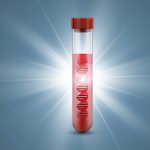Fall 2023 Vol. 13 Issue 03
-
From the Editor-in-Chief
Immunotherapy Gets PersonalTherapeutic vaccines can stimulate an immune response to cancer.
by William G. Nelson, MD, PhD
-
Your Cancer Guide
The Art of DeflectionCasual conversations can take unwelcome turns after you’ve been diagnosed with cancer. Here’s how to respond when people say the wrong things.
by Hester Hill Schnipper
-
Caregiving With Confidence
Addressing AngerCaregivers can take steps to encourage patients to have more healthy dialogue about strong emotions.
by K.J. Bannan
-
Policy Matters
Clinical Trials That Reflect Real-world PatientsA recent article discusses challenges and practical solutions for working toward more diverse and equitable oncology clinical trials.
by Nicholas Warren, PhD
-
Immunotherapy: When Is Sooner Better Than Later?
Researchers explore whether giving immunotherapy before surgery and other treatments could improve outcomes for people with cancer.
by Stephen Ornes
-
Living With Chronic Blood Cancer
Thanks to medical advances, more people with blood cancer are living for years or even decades after their diagnosis. But when these diseases are incurable, patients must learn to adjust to ongoing monitoring and treatment.
by Kendall K. Morgan
-
Making Clinical Trials Easier
Clinical trials can be hard to find, challenging to get into and difficult to complete. Patient advocates and their supporters want to change that.
by Cameron Walker
-
Survivor Profile
Changing CourseInitially diagnosed with ductal carcinoma in situ, Sabrina Mayhew’s persistence in seeking out experts would lead to tumor testing that indicated she could safely forgo chemotherapy.
by Queen Muse
-
Q&A
Pulling Back the Research CurtainJessica Wapner looks back on the scientific discoveries that transformed outcomes for chronic myelogenous leukemia.
by Marci A. Landsmann
-
Get Involved
A Bountiful HarvestFood for the Cure provides fresh produce to people with cancer.
by Thomas Celona
-
Facts and Stats
Will We Make the Moonshot?As the Cancer Moonshot aims to cut cancer deaths in half by 2047, researchers identify strategies to hit that benchmark.
by Thomas Celona
AACR conference brings experts together to discuss strategies to reach people historically left out of cancer research.
by Eric Fitzsimmons
Treatment Combination Improves Survival in EGFR-positive Lung CancerAdding chemotherapy to targeted therapy improves outcomes for people with advanced EGFR-positive non-small cell lung cancer.
by Sandra Gordon
Lessons From 20 Years Living With CancerMultiple myeloma survivor Jonathan Gluck reflects on uncertainty, and the scientific progress that has kept him living with cancer for more than two decades.
by Eric Fitzsimmons
The Enduring Importance of Cancer Disparities ResearchOpening session from AACR conference highlights how perseverance and adversity have informed cancer disparities research over the years.
by Eric Fitzsimmons



















